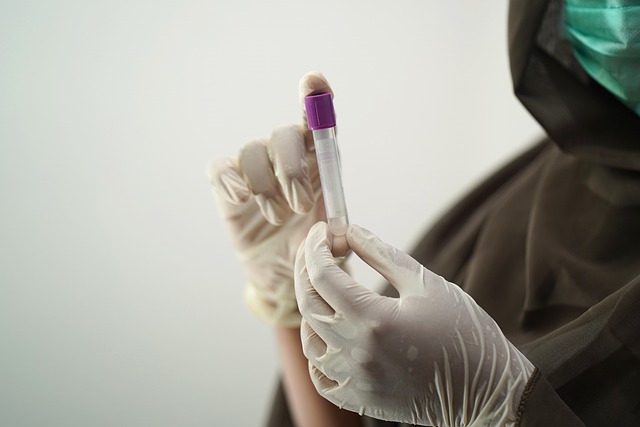The article emphasizes the critical role of Vitamin B12 for maintaining health and its importance for UK men to prevent deficiency-related anaemia and neurological issues. Lifestyle and dietary choices can lead to higher rates of B12 deficiencies in UK men, prompting healthcare providers to use tests like the UK Male Hormone Blood Test, which measures B12 along with other key hormones and nutrients. This comprehensive test allows for early detection of deficiencies, enabling timely intervention to address health concerns. Regular monitoring of B12 levels is recommended, especially for men over 50 or those with dietary restrictions. The UK Male Hormone Blood Test, easily accessible through clinics or mobile phlebotomy services, provides a quick and relatively painless blood draw that is then analyzed in an accredited laboratory to determine Vitamin B12 concentrations. Elevated or depleted levels can signal health conditions that may require lifestyle or medical interventions. The test plays a crucial role in identifying deficiencies and maintaining optimal hormone and nutrient balance for male health in the UK. Individuals should consult with healthcare providers about their results to understand necessary treatment or dietary changes. In summary, the UK Male Hormone Blood Test is an integral component of a proactive approach to men's health in the UK, offering valuable insights into vitamin B12 levels and overall well-being.
UK men’s health is paramount, encompassing a spectrum of wellness indicators, among them Vitamin B12 levels. This article delves into the significance of Vitamin B12 deficiency testing through blood tests, an essential diagnostic tool for maintaining optimal health. Understanding the role of these tests and the process involved can empower men to take proactive steps in their health journey. We will explore the intricacies of B12 testing, from the procedure itself—often part of a broader UK Male Hormone Blood Test panel—to interpreting results and subsequent healthcare actions. Knowledge is key to health management, and this guide aims to shed light on the critical aspect of Vitamin B12 in men’s health.
- Understanding Vitamin B12 Deficiency: The Role of Blood Tests in UK Men's Health
- The Process of Vitamin B12 Testing: What to Expect from a UK Male Hormone Blood Test
- Interpreting Vitamin B12 Blood Test Results and Next Steps for UK Men
Understanding Vitamin B12 Deficiency: The Role of Blood Tests in UK Men's Health

Vitamin B12 plays a pivotal role in maintaining health and wellbeing, particularly among UK men, where deficiency can be prevalent due to various lifestyle and dietary factors. This vital nutrient is integral to the production of red blood cells and the proper functioning of the nervous system. A deficiency in B12 can lead to anaemia and neurological issues, including fatigue, memory loss, and mood disturbances, which can significantly impact a man’s quality of life.
To ascertain whether an individual is suffering from a B12 deficiency, healthcare providers in the UK commonly utilise blood tests. The UK Male Hormone Blood Test, specifically, measures levels of vitamin B12 alongside other hormones and nutrients that are crucial for men’s health. This comprehensive testing approach enables early detection and intervention, which is key to preventing the negative consequences associated with a deficiency. These blood tests offer a non-invasive method for obtaining a clear picture of an individual’s B12 status, allowing for tailored medical advice and treatment plans to address any imbalances or deficiencies effectively. It is advisable for men, particularly those over 50 or with dietary restrictions, to consider regular B12 level checks as part of their health maintenance routine.
The Process of Vitamin B12 Testing: What to Expect from a UK Male Hormone Blood Test

When considering a UK Male Hormone Blood Test, which may include Vitamin B12 levels among other hormones and nutrients, it’s important to understand the process involved. This comprehensive blood test is designed to assess various aspects of male health, including vitamin B12 status, which is crucial for red blood cell formation and neurological function. The test typically involves a simple blood draw, performed by a healthcare professional at a clinic or a mobile phlebotomy service. Patients can expect to have their arm cleaned with an antiseptic wipe at the site where the blood will be taken, usually from the inner elbow or the back of the hand. The healthcare provider will then insert a needle into the vein, collect the required amount of blood, and once the sample is sufficient, carefully remove the needle. The entire process is relatively quick and painless, with the discomfort being minimal and short-lived.
Post-collection, the blood sample is sent to an accredited laboratory for analysis. Here, the level of Vitamin B12 in the blood is measured using specific biochemical assays. The results will indicate whether your Vitamin B12 levels are within the normal range for a healthy individual. Low levels can lead to conditions such as anemia and neurodegenerative changes, both of which are treatable with dietary modifications or supplementation if necessary. It’s recommended that individuals who suspect they may have a B12 deficiency consult with their healthcare provider to discuss the results and determine any subsequent actions required for their health and well-being. The UK Male Hormone Blood Test is a valuable tool in maintaining men’s health, providing insights into not only Vitamin B12 but also other essential hormones and nutrients that are vital for overall male vitality.
Interpreting Vitamin B12 Blood Test Results and Next Steps for UK Men

UK males can be particularly susceptible to vitamin B12 deficiency, a condition that may lead to anemia and neurological issues if left unaddressed. A vitamin B12 blood test is the primary method for diagnosing such a deficiency. When interpreting the results of this test, it’s crucial to understand the reference ranges provided by the laboratory performing the analysis. In the UK, these ranges are typically based on the average levels found in the general population and account for differences in diet, absorption, and metabolism. For men, a serum B12 level below 200 picograms per milliliter (pg/mL) is often considered indicative of a deficiency. If low levels are detected, it’s imperative to investigate the underlying causes, which may include poor dietary intake, gastrointestinal conditions impairing absorption, or certain medications.
The next steps for UK men diagnosed with a vitamin B12 deficiency typically involve addressing the underlying cause first. This might involve dietary changes, such as increasing the intake of foods rich in B12 like meat, dairy, and fortified alternatives, or medical treatment to manage any gastrointestinal issues. In some cases, B12 injections may be prescribed to quickly raise levels and alleviate symptoms. It’s also advisable for men to undergo periodic monitoring to ensure that their B12 levels stabilize and remain within a healthy range. Additionally, the UK National Health Service (NHS) may offer support and resources for lifestyle changes and treatment options, making it easier for men to manage their vitamin B12 levels effectively.
UK men’s health is a critical concern, and understanding the importance of vitamin B12 through blood tests is essential for maintaining optimal well-being. A comprehensive evaluation of this nutrient, as detailed in the article, underscores the significance of routine UK male hormone blood testing. By accurately interpreting the results of these tests, healthcare providers can effectively manage and treat any deficiencies, ensuring men receive the care necessary to support their health. For those who suspect they may be at risk of B12 deficiency, it is advisable to consult with a healthcare professional and consider the specified blood tests as part of a holistic health approach. Ensuring adequate levels of vitamin B12 is crucial for supporting energy levels, cognitive function, and overall health, particularly for UK men who may be predisposed to this deficiency due to dietary habits or other health conditions.
